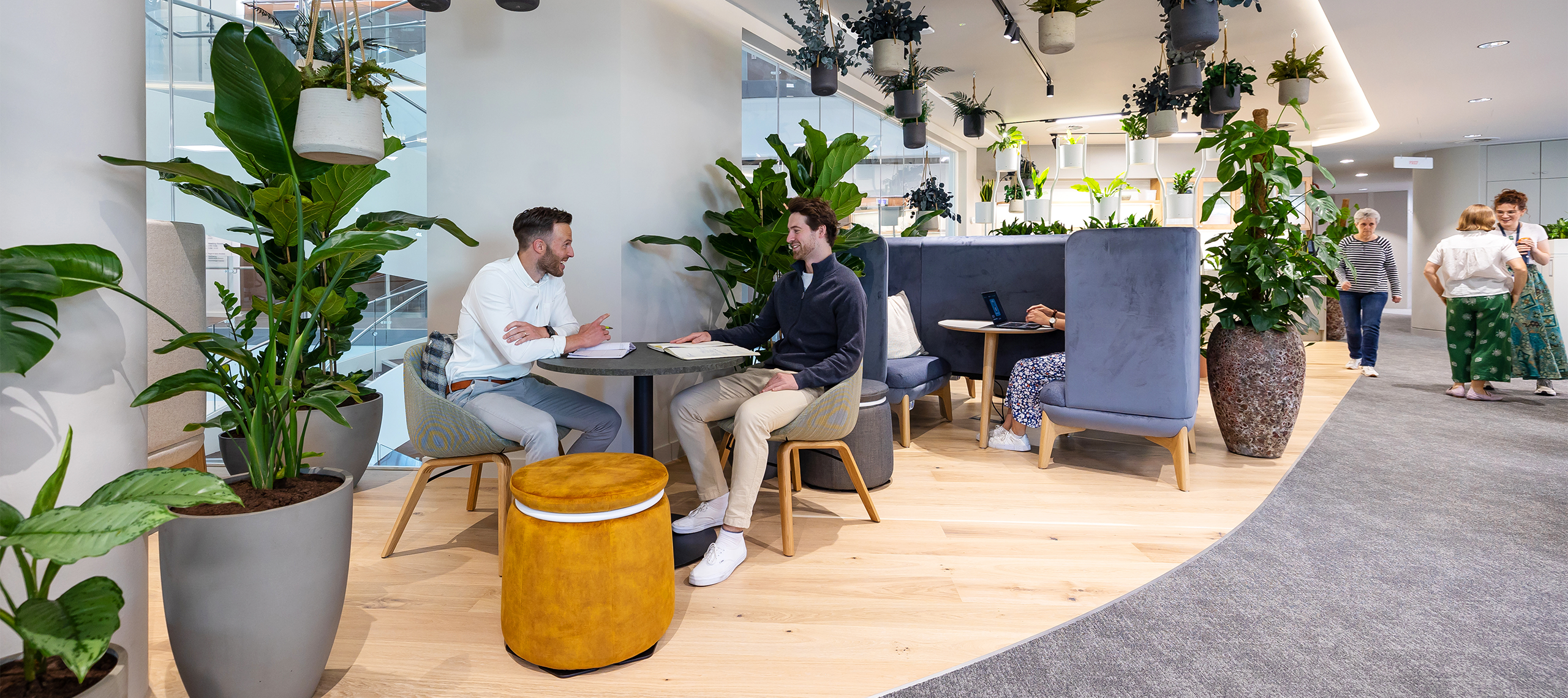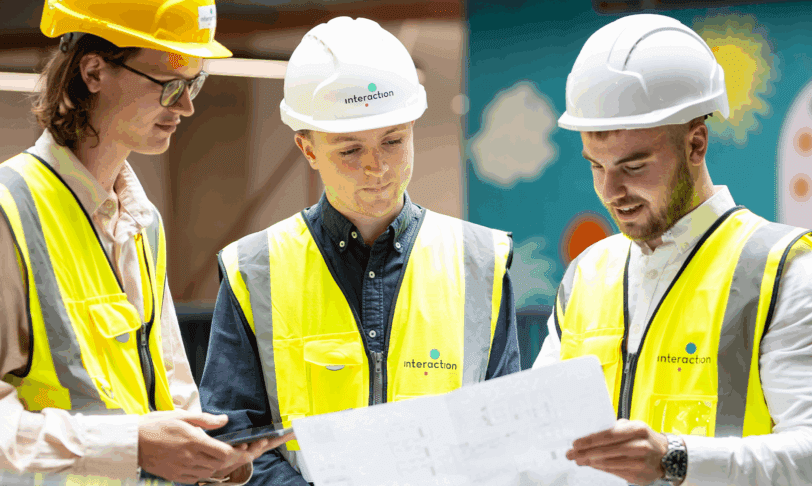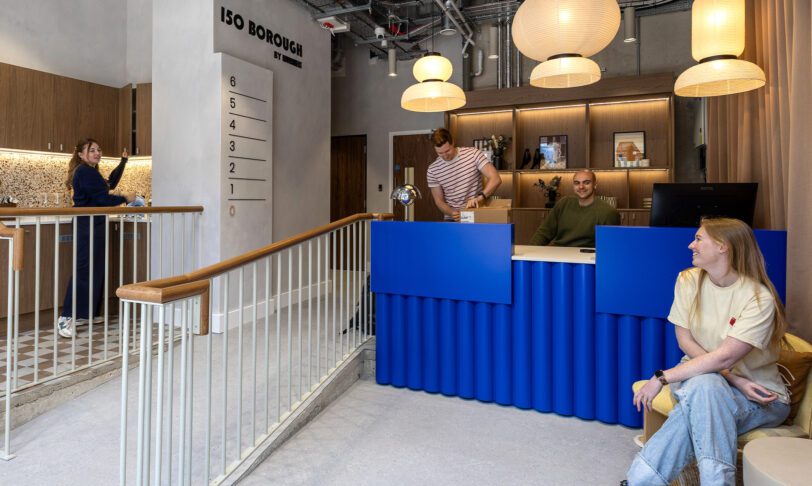The strategic advantage of hybrid workspaces for law firms
Legal talent is increasingly selective. Smart, ambitious, values-driven professionals now consider more than compensation when choosing where to build their careers. They’re looking for a place to collaborate, develop and grow – and forward-thinking law firms are using modern workspace design to gain the edge.
The talent landscape has changed
Retention in the legal sector remains a hot topic. Many younger lawyers are questioning traditional career paths, with a recent LexisNexis survey finding that only 25% of associates aspire to partnership within five years.
That means recruitment and HR teams are having to reassess every element of the employee value proposition. For many firms, the office is no longer just a physical asset – it’s become a key battleground in the fight to attract and retain top talent.
Hybrid is now standard practice
Firms have adapted to new patterns. Only 19% of lawyers now work in the office five days a week, with most coming into two to three days a week. Offices need to accommodate those new rhythms rather than resist them. That includes hybrid-ready tech, desk booking systems and making the office an attractive enough proposition that the commute feels worth it.
Presenteeism is no longer the point. The office has become a tool – for building culture, supporting learning, enabling discretion, safeguarding wellbeing, and reinforcing trust.
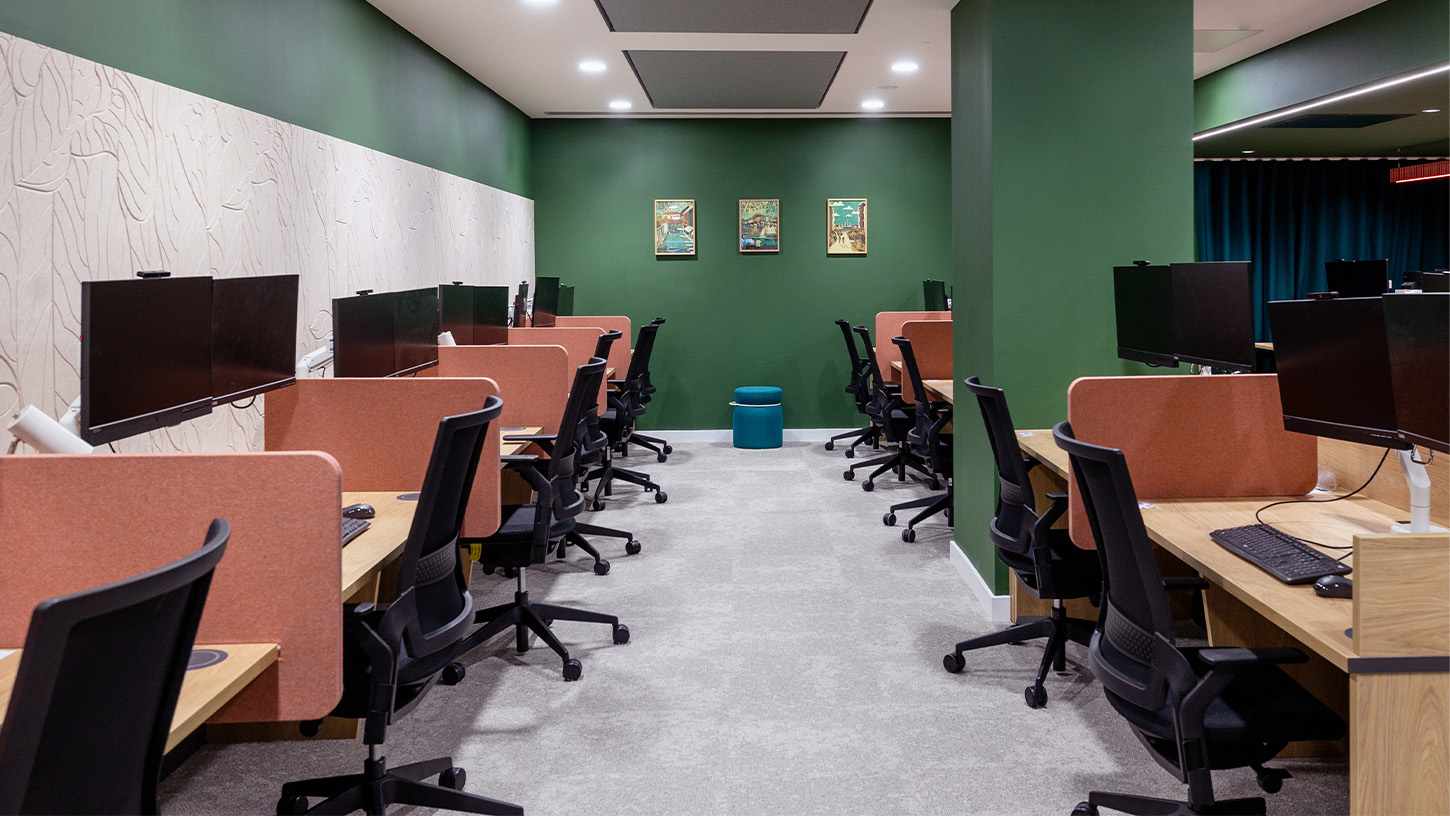
Why the office still matters – especially to Gen Z
Gen Z already makes up more than a quarter of the workforce. They bring digital fluency, high expectations, and a clear sense of what matters. For them, in-person collaboration, values-led culture, and wellbeing infrastructure are high priorities.
Helen Hodgkinson, Chief People and Places Officer at TLT, sees this first-hand:
“Trainees often want to be in the office full-time. They enjoy the incidental conversations – those little nuggets of information you wouldn’t otherwise have gathered.”
For younger professionals – especially those in shared accommodation with home offices – working from home isn’t always ideal. Offices offer structure, clarity, and a sense of opportunity that remote work alone can’t match.
Law firms today are juggling the expectations of very different generations – from senior partners may favour quiet, enclosed offices, but younger staff want more flexibility and collaboration opportunities. Today’s legal workspaces must support a mix of focused desk work, confidential calls and collaboration – for teams that may rarely all be in on the same day.
What does a strategic legal workplace look like?
Designing for today’s lawyers requires more than aesthetics. It demands clear strategic intent. The most effective hybrid workspaces are:
Flexible
- A mix of focused workspaces, breakout zones, private booths and communal areas
- Smart booking systems and occupancy tracking
- Sit-stand desks and ergonomic options – ensuring your team can work comfortably and protect long-term health
Confidential
- Zoned acoustics, secure AV, access-controlled meeting rooms
- Private booths and sound-dampened spaces for client calls and HR conversations
- Acoustic design that protects discretion
Explore our guide to acoustic design →
Culturally connected
- Clear brand expression through design, whether visual cues such as brand colours in upholstery, or communicating your brand’s purpose, eg. including indoor planting for sustainability-focussed firms
- Amenities that support community: shared kitchens, informal meeting spots, wellbeing rooms
- Quiet spaces, prayer rooms, and inclusive infrastructure
Refined
- Quality materials, curated lighting, warm hospitality-inspired reception spaces
AV and technology that work seamlessly
Learn more about luxury legal workspace design →
Case in point: TLT Manchester
TLT’s new Manchester office is a blueprint for destination design. Occupying the top two floors of one of the UK’s most sustainable office buildings, it reflects the firm’s values in every detail.
Flexible zones, quiet booths, collaboration areas and social breakout spaces give people autonomy and flexibility to work where they feel best throughout the day. DDA accessible meeting rooms and desks, a wellbeing room and multi-faith room ensure every employee feels included. And on the 11th floor, a coffee lounge staffed by a full-time barista fosters connection and informal collaboration, with views across the city.
Helen Hodgkinson sums it up:
“We asked our people what they wanted from the office. That insight helped us build something people actually use and value.”
Listen to Helen’s interview on Thrivalism, our workplace podcast.
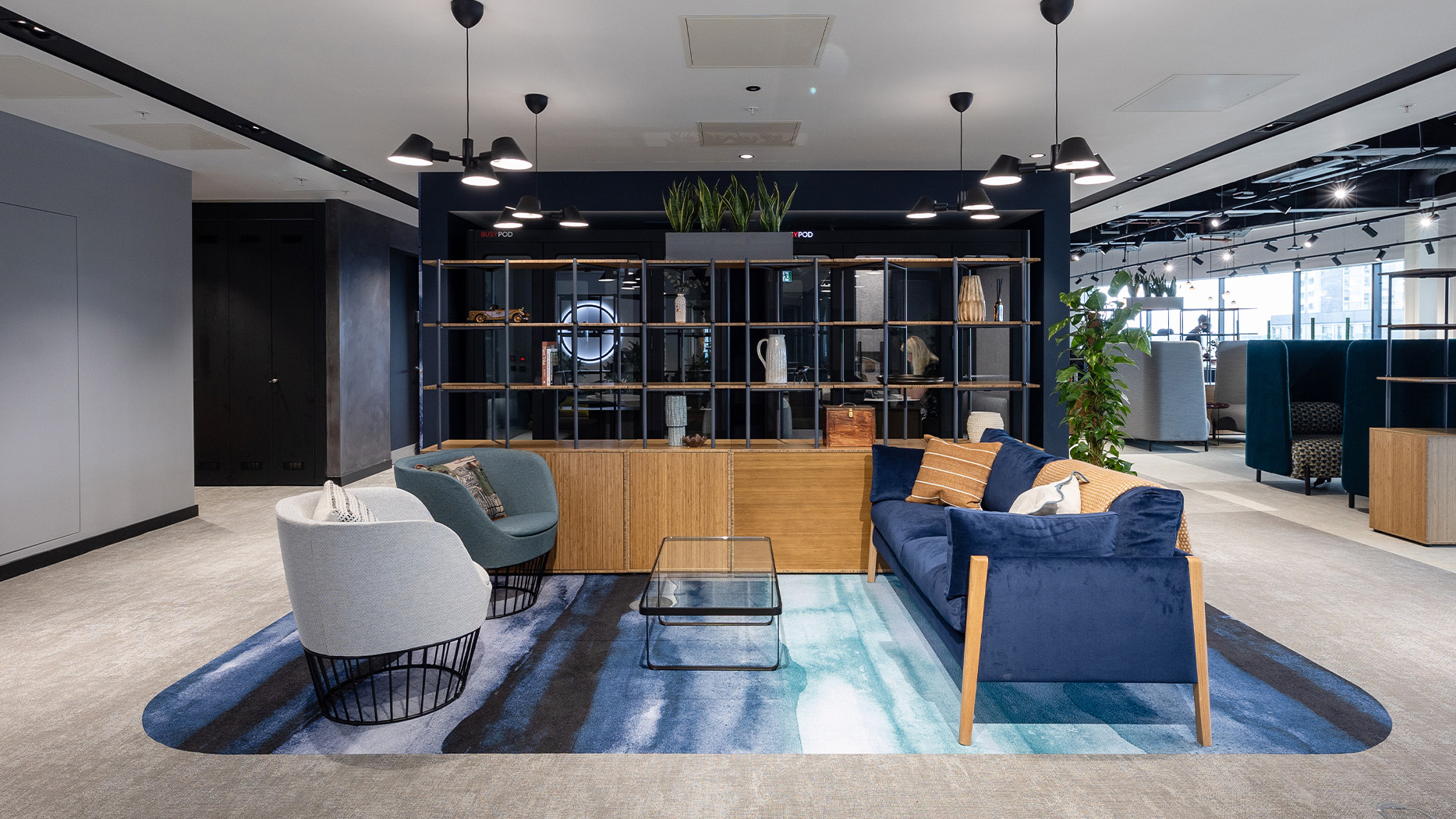
The impact on recruitment and retention
Design is not decoration. It’s a performance driver. A well-designed office helps law firms:
- Increase retention
- Attract top-tier candidates
- Reinforce client trust
- Support mental health and wellbeing
- Showcase ESG commitments
Firms that invest in hybrid-ready, people-first workspaces are already reaping the benefits. After introducing TLT World, TLT’s flexible and hybrid work policy, the firm’s headcount grew 20% in a year, with other firms boasting similar stats after investing in hybrid-ready workspaces. These results aren’t accidental – they’re the product of intentional workplace strategy.
Case in point: Osborne Clarke
When Osborne Clarke reimagined its Bristol HQ, it partnered with Interaction to embed sustainability, flexibility and wellbeing into the very fabric of the space. The result? A stunning workplace aligned with the WELL Building Standard and certified BREEAM ‘Excellent’ for the firm’s 800 Bristol employees It supports hybrid collaboration, discreet client meetings, and deep focus, while telling a clear story about the firm’s values and ambition. The design went on to win a National BCO Award for Best Fit-Out of Workplace.
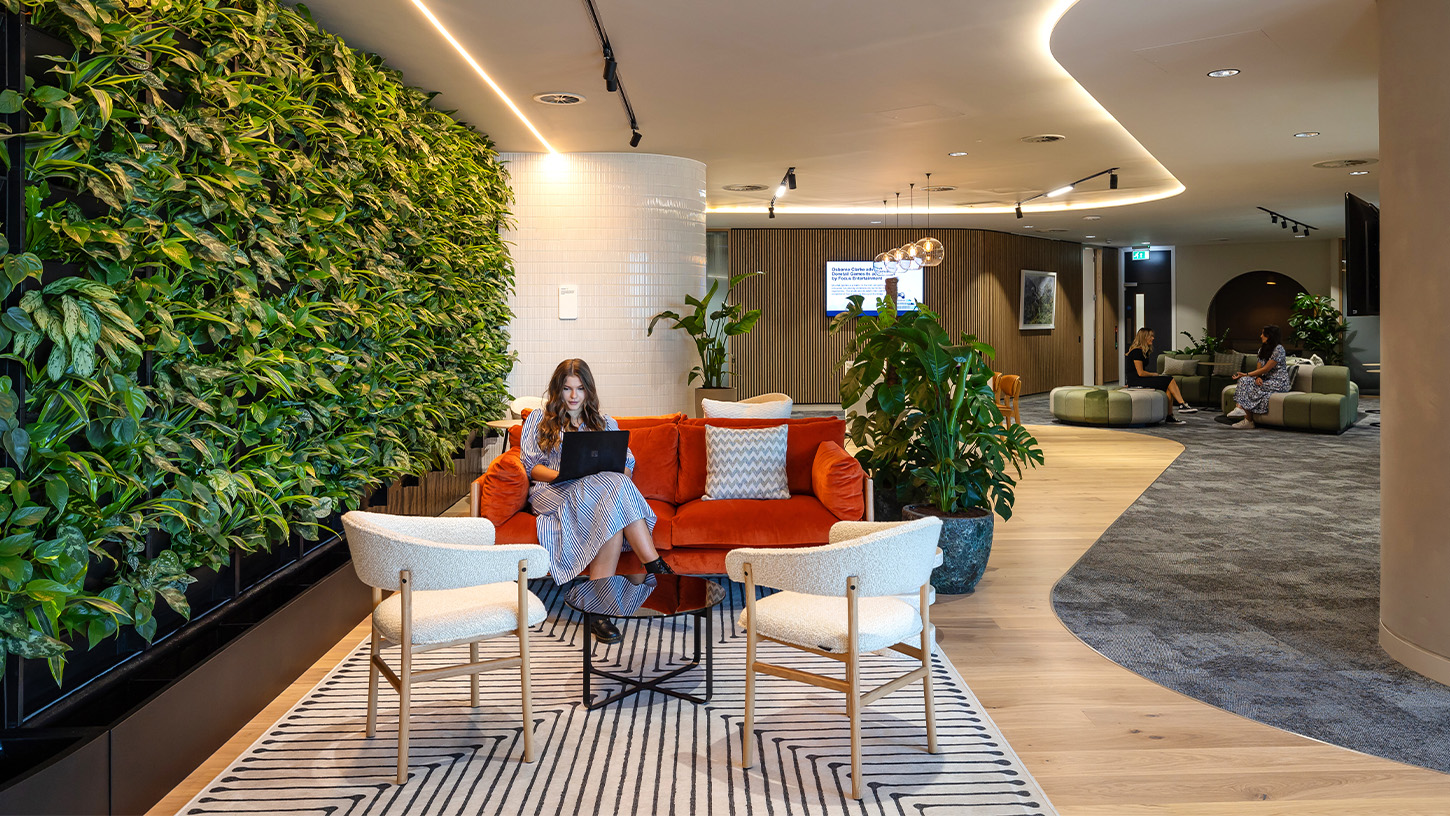
Final thoughts
The office is still one of your most strategic assets. A well-designed workplace attracts talent, supports performance, and reflects your firm’s values. In a market where the best candidates have options, that matters.
Are you ready to use your office to attract and retain the next generation of legal talent?
We help law firms create future-ready workplaces that deliver results. Get in touch today.
